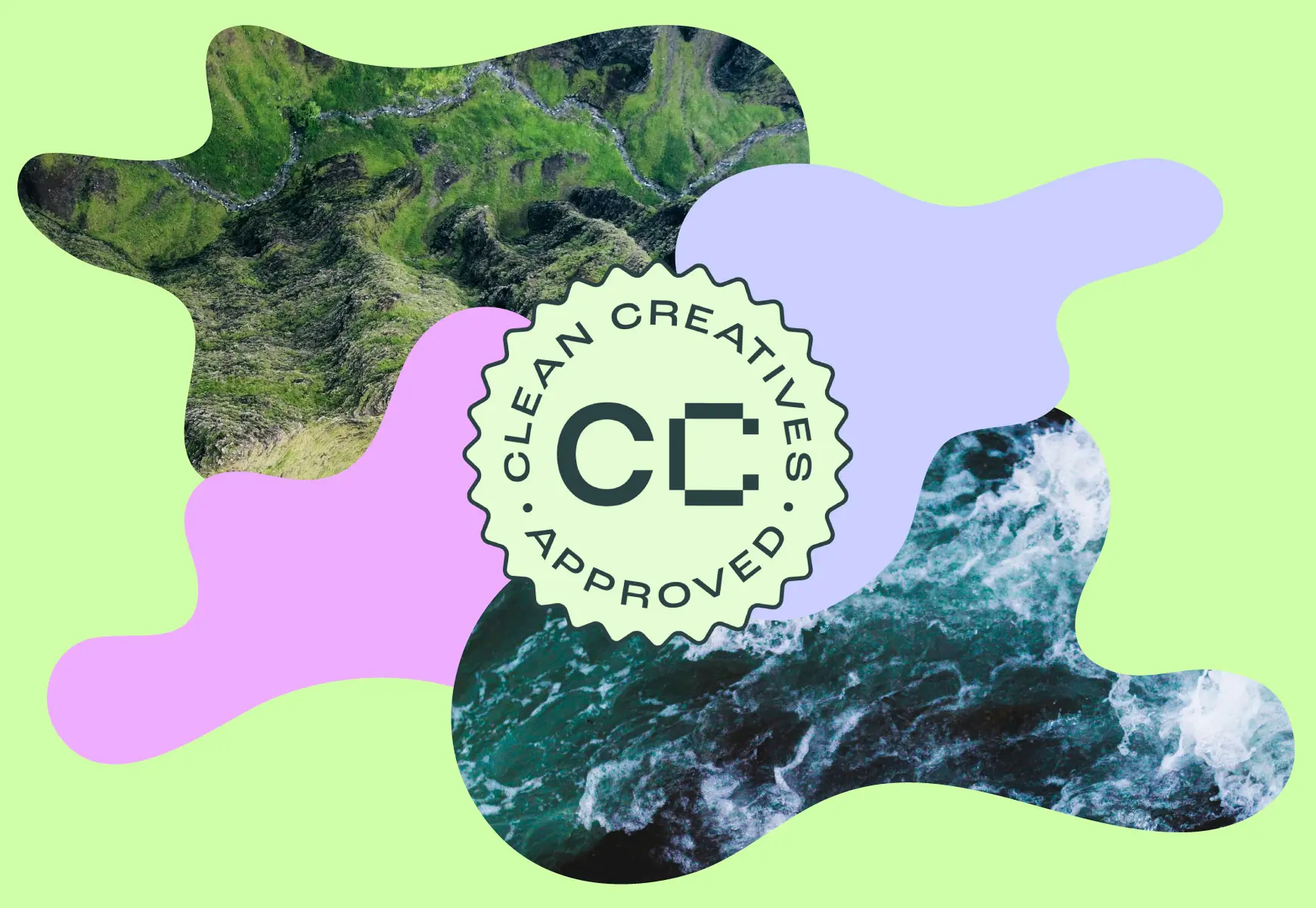News & updates
Why small c signed the Clean Creatives pledge
By Claire Smalley

This summer, small c studio joined over 1,100 agencies and 2,100 creatives in signing the Clean Creatives pledge. It’s a shared commitment to refuse future contracts promoting fossil fuel companies or their polluting products — and one simple way we can contribute to climate care.
Why climate care matters to small c
Taking care of the Earth matters to small c because it matters to me. My studio is rooted in the goal of helping to build a safer, more sustainable society — and that mission is personal.
Nature has always felt magical and miraculous to me. I love animals, being outside and gardening. I’ve even come to love bugs, partly inspired by my four-year-old, who shouts “Worm rescue!” whenever he finds worms on the sidewalk, making sure that we relocate them to the garden. Nature reminds me how small I am and how everything around us is connected in a beautiful, intricate web.
More importantly than that, humans need the Earth and everything it inhabits. Many of us have separated ourselves so much from nature that we forget we are part of it. If we throw off or destroy the natural balance of the climate, we risk destroying the whole ecosystem — ourselves included.
How PR and marketing are linked with climate harm
One way we live out our values at small c is partnering with organizations who care about people and the planet. For example, we loved reimagining the visual branding for EX, a tobacco cessation program run by Truth Initiative and designing interpretive signs for an urban farm in Washington, D.C.
Another way is joining the Clean Creatives movement in refusing work with fossil fuel organizations. These groups have historically hired creatives to help mislead the public about climate science — but that connection hasn’t always been clear.
In June 2024, the UN Secretary General called out PR firms for intentionally sowing doubt about climate change science — just as tobacco companies once spread disinformation about smoking’s harmfulness.
For example, Harvard University science historian Naomi Oreskes and co-author Geoffrey Supran found that Exxon Mobil developed internal climate modeling decades ago that predicted the conditions we’re experiencing today. But the company hid that knowledge from the public and kept burning oil. Knowingly or not, marketers and publicists helped Exxon push a rosier narrative.
Duncan Meisel, the executive director of Clean Creatives, put it this way: “PR has been a source of misinformation about climate change for decades. Essentially every misleading thing that anyone thinks about climate change began with an ad agency or PR agency working with fossil fuels.”
Even in 2024, fossil fuel companies use misleading “climate-care” statements and greenwashing to make climate change feel like our personal responsibility instead of a corporate responsibility.
Join the Clean Creatives movement with us
Still, each of us is accountable to own our actions, and that’s why we joined Clean Creatives. At small c, we’re committed to lending our talents to those prioritizing safety, sustainability and equity — not to groups spreading disinformation, propaganda and greenwashing that slows action.
As creatives, we have more influence than we may realize. Climate change can feel overwhelming and fossil fuel companies intimidating. But by aligning our work with science and ethics, we can lead in shaping a more sustainable, equitable world.
We invite other agencies and creatives to join the Clean Creatives movement. Let’s collectively use our talents to drive positive change, not cause more harm:
- If you’re ready to join us, you can sign the Clean Creatives pledge here.
- Learn more about how advertising and PR contribute to the climate emergency.
- Keep up with Clean Creatives on Instagram, LinkedIn, YouTube, TikTok and X.
Collage photos are by Mika Korhonen and Oscar Keys on Unsplash.